Hundreds of high school graduates visited our University during the Open Day on Saturday, April 15. Lecturers and students from all faculties and majors were waiting for them. Recruitment begins on June 7.
“Welcome to UKSW. I hope that the Open Day will confirm your conviction that our University is a good place to study and make friends,” said Professor Anna Fidelus, PhD DSc, Vice-Rector for Students and Education. “Cardinal Stefan Wyszyński University, by providing an opportunity to acquire knowledge and conduct scientific research, remains a friendly place, an academic community, where you can spread your wings.”
Vice-Rector Anna Fidelus emphasized how important it is for the University’s lecturers to build on sustainable values. She assured the candidates that Cardinal Stefan Wyszyński University tries to prepare students to find their place on the labour market and, more broadly, to live in the modern world.
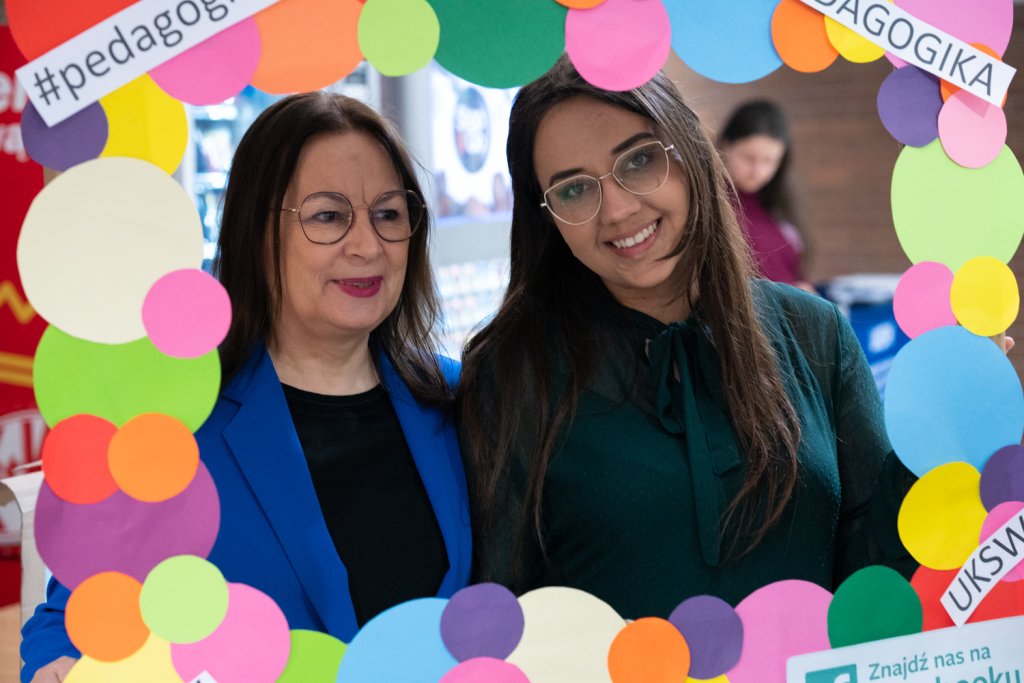
Varied program, great atmosphere
During the Open Day, which was held on the Wóycickiego campus, the largest number of activities took place in the Auditorium Maximum building. In the Candidate’s Zone, all faculties and majors, dozens of research groups, and general university units, such as Student Government, Student Support Centre, Career Office with a career advisor, Panda TV, Academic Chaplaincy, and the Independent Students’ Association (NZS), presented themselves. On stage, third-year students of journalism, Daniel Śmieciński and Kinga Kwaczyńska, held talks with representatives of the University first on how to choose the right field of study, then on how to get in, win a scholarship, and, for example, how to deal with pre-matriculation stress.
The most crowded stands were those of the faculties where candidates could obtain detailed information about the majors and recruitment requirements. This year, recruitment begins on 7 June and will last until 11 July. The results will be announced on 20 July.
“Our curriculum is so diverse that everyone will find what suits best here. We have state-of-the-art laboratories and three research groups. There is a great atmosphere in the faculty, the lecturers are very helpful,” students of the Faculty of Biology and Environmental Sciences encouraged the candidates.
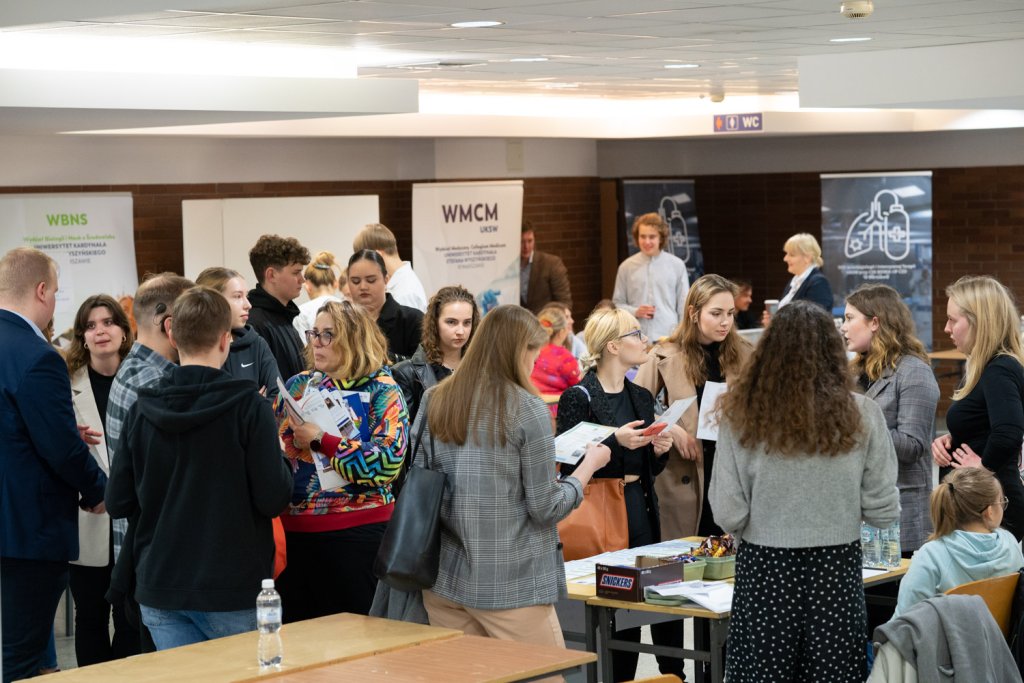
At the stand of the Faculty of Pedagogical Sciences, one could see teaching aids for school-age children, for early childhood education, and for children with special educational needs.
Special faculty presentations held in several buildings of the Wóycickiego campus were also very popular. There were not enough seats for all those wishing to take part in a simulation of a divorce trial conducted by the Student Research Group of Civil Procedural Law of the Faculty of Law and Administration of UKSW.
Among the candidates who visited us on Saturday, the “matura revisions” conducted by our lecturers in Polish, mathematics, English, and history attracted great interest.
Agata Malinowska and Natalia Lempek from the final class of Wojciech Górski High School in Warsaw found the mathematics classes conducted by Tomasz Rogala, PhD, from the Faculty of Mathematics and Natural Sciences very useful. “We learned what we do know and what we don’t know. We enjoyed it very much,” said the school graduates.
Candidates for studies could also take part in demonstration lectures conducted by UKSW lecturers. Stanisław Wiśniewski, a graduate of Ignacy Domeyko High School in Warsaw, who hesitates between studying mathematics and computer science, attended a lecture on fractals by Professor Mark Wolf, PhD, DSc.
Those interested in medical studies had the opportunity to tour the new, modern building of the Faculty of Medicine. Collegium Medicum.
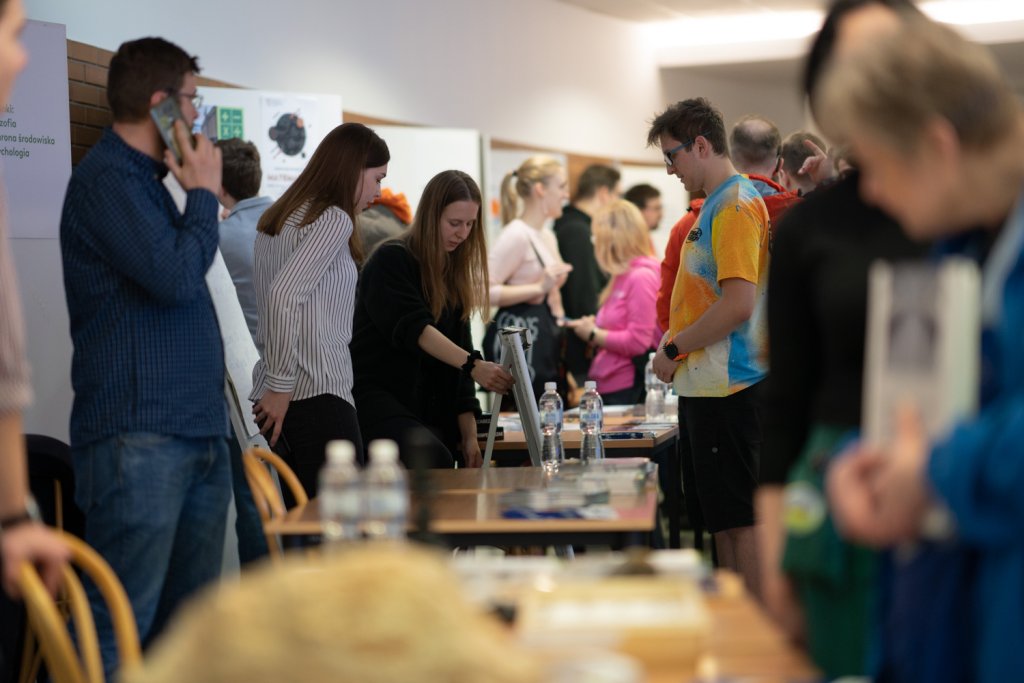
Discover talents and opportunities
The entire hall on the first floor of the Auditorium Maximum was occupied by students associated with research groups who prepared various attractions for their younger mates. A Panda, the symbol of the university television, and “Pavlov’s dog,” a nice mascot of the Psychology Students’ Research Group, were circulating between the stands. Students of this group prepared a raffle with questions, ranging from the serious: “What is an existential crisis?” to the seemingly trivial: “Why do we like sweet snacks?”
Members of the History Students’ and Doctoral Students’ Group drew attention to themselves with their historical costumes: they included a lancer in a replica of the 1920 legion uniform of the 11th lancer regiment, a Viking, and a Renaissance Mazovian nobleman in a kontush.
“For me, choosing to study at UKSW has proved a hit. I hope not to stop at MA studies.” This is how Krystian Gajc, a second-year history student, in a lancer outfit, encouraged candidates to study at our University.
Sonia Serafin, a third-year medical student at the Faculty of Medicine. Collegium Medicum, active in the paediatrics research group, highlighted the faculty’s strengths in this way: “It is intimate, so it is easier to make friends here. Thanks to internships in Warsaw hospitals, we learn from great specialists. We also have the opportunity to go on Erasmus trips to medical universities in France, Germany, Spain, and Slovakia.”
Karolina Pawłowska and Wiktoria Sadkowska, representing the Literary Research Group of the Faculty of Humanities, too, persuaded high school graduates that it is worth studying at UKSW.
“I am delighted with this place,” said Karolina Sadkowska, a second-year Polish philology student. “Here no one is anonymous. We are not numbers in an index. We all know each other, so our relations are lively. The lecturers always have time for us. We can discover our talents and skills, for example, by publishing in “Las rzeczy,” the periodical which has existed for twenty years”.
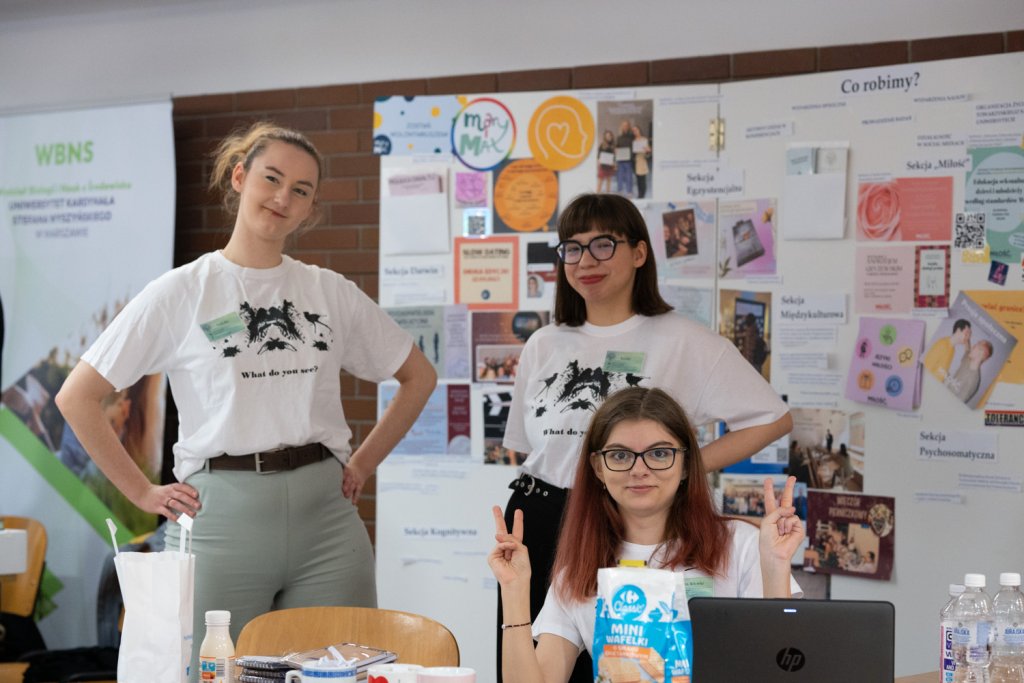
Students from the Faculty of Theology, Ewa Karpińska and Paulina Jedlińska, are members of the Research Group of Media Studies Travellers. They encouraged Zuzanna Rosik, who came from Sochaczew for the Open Day and whose passion is “talking to people,” to study journalism at UKSW.
“The theoretical knowledge we have gained here is very useful,” said the students, “but at UKSW the emphasis is on practical classes and establishing contacts. The university helps a lot with this. And by offering ten specialisations, it really creates a lot of opportunities.”
“Everyone is friendly here, both students and lecturers,” summed up Nadia Zaborowska, a graduate of Joachim Lelewel High School in Warsaw, who intends to study psychology or special pedagogy.
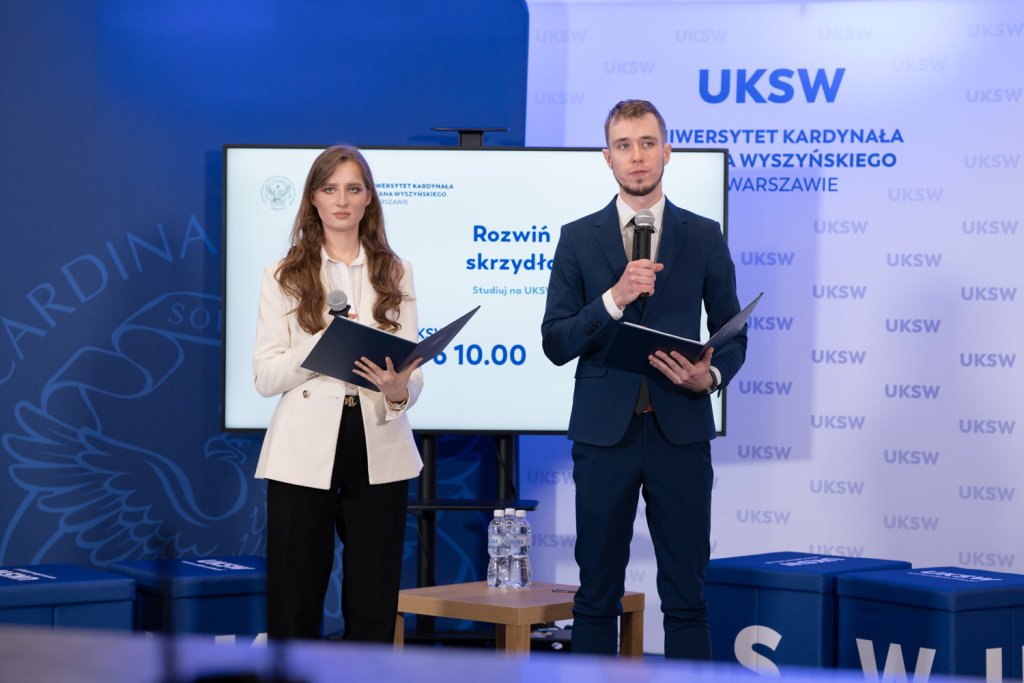
There are 12 faculties at Cardinal Stefan Wyszyński University and currently 11,000 students in 95 full-time and part-time undergraduate and postgraduate majors of first and second-cycle studies. There are more than 70 research groups.
 18 May 2023
18 May 2023








